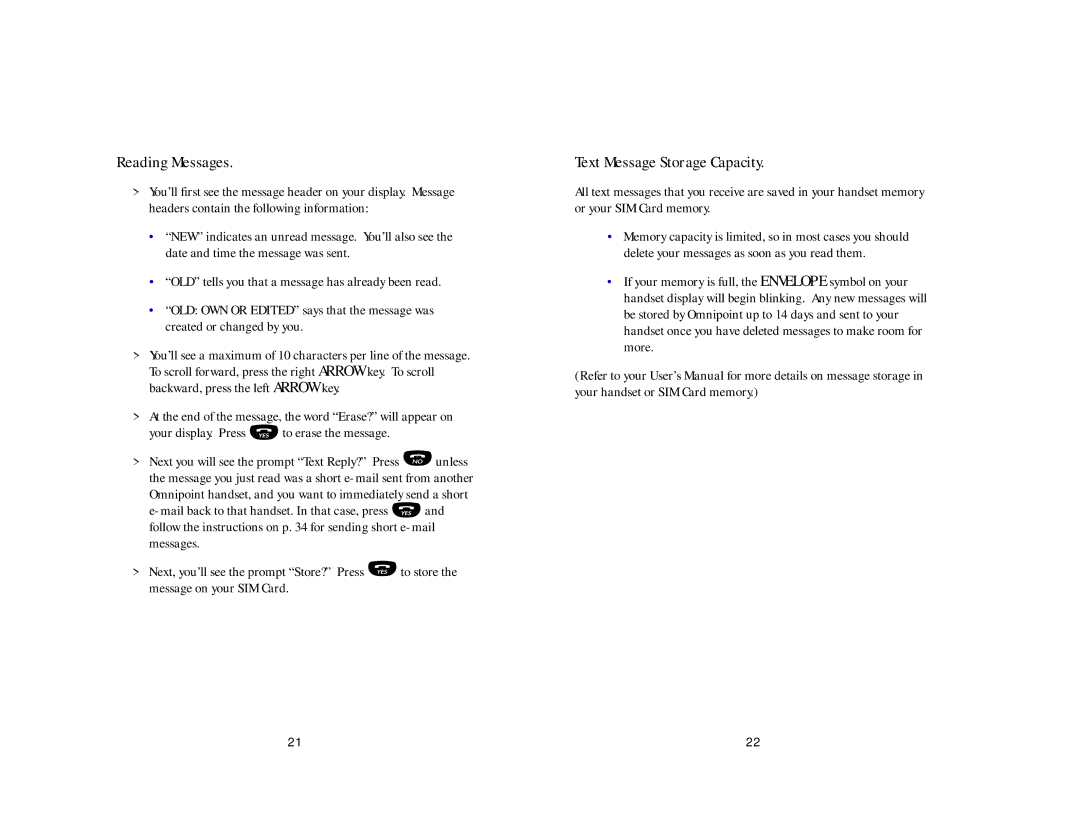Reading Messages.
>You’ll first see the message header on your display. Message headers contain the following information:
•“NEW” indicates an unread message. You’ll also see the date and time the message was sent.
•“OLD” tells you that a message has already been read.
•“OLD: OWN OR EDITED” says that the message was created or changed by you.
>You’ll see a maximum of 10 characters per line of the message. To scroll forward, press the right ARROW key. To scroll backward, press the left ARROW key.
>At the end of the message, the word “Erase?” will appear on
your display. Press ![]() to erase the message.
to erase the message.
>Next you will see the prompt “Text Reply?” Press ![]() unless the message you just read was a short
unless the message you just read was a short
Omnipoint handset, and you want to immediately send a short
![]() and follow the instructions on p. 34 for sending short
and follow the instructions on p. 34 for sending short
>Next, you’ll see the prompt “Store?” Press ![]() to store the message on your SIM Card.
to store the message on your SIM Card.
Text Message Storage Capacity.
All text messages that you receive are saved in your handset memory or your SIM Card memory.
•Memory capacity is limited, so in most cases you should delete your messages as soon as you read them.
•If your memory is full, the ENVELOPE symbol on your handset display will begin blinking. Any new messages will be stored by Omnipoint up to 14 days and sent to your handset once you have deleted messages to make room for more.
(Refer to your User’s Manual for more details on message storage in your handset or SIM Card memory.)
21 | 22 |
